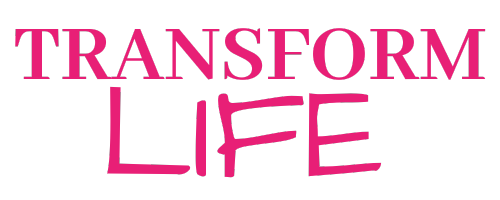Table of Contents
What are home modifications, how it helps people with disabilities and why is it important to reach out to an Occupational Therapist

Home modifications refer to the structural or design changes made to a living space to accommodate the specific needs and challenges of individuals with disabilities. These modifications are intended to enhance accessibility, safety, and independence for people facing mobility, sensory, or cognitive impairments. From simple adjustments like installing grab bars in bathrooms to more complex renovations such as widening doorways or creating ramps, home modifications aim to create an environment that fosters inclusion and supports individuals in their daily activities.
The significance of home modifications for people with disabilities cannot be overstated. These adaptations play a crucial role in promoting autonomy, improving quality of life, and reducing dependence on caregivers. By customizing living spaces to suit the unique requirements of individuals with disabilities, home modifications contribute to creating an inclusive and barrier-free environment. In this comprehensive exploration, we will delve into the various aspects of home modifications, their impact on individuals with disabilities, and the pivotal role of Occupational Therapists in this process.
Understanding Home Modifications

A. Types of Home Modifications
- Structural Changes: These include alterations to the physical structure of the home, such as widening doorways, installing ramps, or elevators.
- Safety Modifications: Measures like adding grab bars, non-slip flooring, and improved lighting contribute to a safer living environment.
- Technological Adaptations: Incorporating assistive technologies like smart home devices or voice-activated controls can enhance accessibility and convenience.
- Adaptive Furniture and Equipment: Customized furniture and equipment, such as adjustable-height tables or specialized seating, cater to individual needs.
B. The Importance of Customization
- Personalization is key in home modifications to address specific disabilities and ensure that the adapted space aligns with the individual’s abilities, preferences, and lifestyle.
- Tailoring modifications based on the type and severity of the disability fosters a supportive and empowering living environment.
Benefits of Home Modifications for People with Disabilities
A. Enhanced Independence
- Autonomy in Daily Activities: Well-designed modifications empower individuals to perform daily tasks independently, fostering a sense of self-reliance.
- Improved Mobility: Structural changes, like ramps and widened doorways, enable easier movement, promoting a more active and mobile lifestyle.
B. Safety and Well-being
- Preventing Accidents: Safety modifications contribute to a secure living space, reducing the risk of accidents and injuries.
- Mental Health Impact: A safe and accessible home environment positively influences mental well-being, reducing stress and anxiety.
C. Social Inclusion
- Community Engagement: Accessible homes enable individuals to participate in community activities, fostering social connections and reducing isolation.
- Equal Opportunities: By removing physical barriers, home modifications contribute to creating a more inclusive society where individuals with disabilities can actively engage in various aspects of life.
The Role of Occupational Therapists in Home Modifications

A. Assessment and Individualized Planning
- Comprehensive Evaluation: Occupational Therapists conduct thorough assessments of the individual’s abilities, challenges, and goals.
- Customized Plans: Based on assessments, therapists develop personalized plans outlining necessary modifications to enhance independence and well-being.
B. Collaboration with Other Professionals
- Multidisciplinary Approach: Occupational Therapists collaborate with architects, contractors, and other professionals to ensure that modifications align with both accessibility standards and the individual’s needs.
- Communication Skills: Effective communication is essential for conveying specific requirements and ensuring a cohesive approach to the modification process.
C. Education and Training
- Client Empowerment: Therapists educate clients and their caregivers on using modified spaces and equipment effectively.
- Training Programs: Occupational Therapists may provide training sessions to enhance the individual’s skills and confidence in navigating their adapted environment.
The Significance of Seeking Occupational Therapy Services

A. Early Intervention
- Preventive Approach: Early involvement of Occupational Therapists allows for proactive modifications, preventing potential challenges and enhancing long-term independence.
B. Holistic Approach to Well-being
- Addressing Physical and Emotional Needs: Occupational Therapists consider both the physical and emotional aspects of disability, ensuring holistic support for the individual.
- Adapting to Evolving Needs: Regular follow-ups and assessments help adapt modifications to the individual’s changing needs over time.
C. Legal and Ethical Considerations
- Compliance with Regulations: Occupational Therapists ensure that home modifications comply with accessibility standards and legal requirements.
- Ethical Considerations: Upholding ethical standards, therapists prioritize the well-being and autonomy of the individual throughout the modification process.
Challenges and Future Directions

A. Financial Barriers
- Cost of Modifications: Financial constraints can be a significant obstacle, and exploring funding options and financial assistance programs becomes crucial.
- Insurance Coverage: Advocacy for increased insurance coverage as well as funding for the NDIS in the NDIS plan for home modifications to make them more accessible.
B. Technological Advancements
- Incorporating Innovations: Embracing technological advancements in home automation and assistive devices to enhance accessibility and convenience.
- Affordability and Accessibility: Ensuring that new technologies are both affordable and accessible to individuals with varying financial means.
C. Advocacy and Awareness
- Promoting Understanding: Ongoing efforts to raise awareness about the importance of home modifications and advocating for policy changes to support inclusivity.
- Community Engagement: Involving communities in creating accessible spaces and fostering a culture of understanding and support for individuals with disabilities.
OT at Transform Life
In conclusion, home modifications play a pivotal role in empowering individuals with disabilities, fostering independence, and promoting social inclusion. The collaboration between Occupational Therapists and various professionals ensures a comprehensive and individualized approach to the modification process. Seeking the services of Occupational Therapists early on is crucial for effective planning and intervention, addressing the unique needs of each individual.
As we navigate the challenges and opportunities in the realm of home modifications, it is essential to recognize the transformative impact these adaptations can have on the lives of people with disabilities. By advocating for financial support, embracing technological advancements, and promoting awareness, society can work towards creating truly inclusive environments where everyone, regardless of ability, can thrive.

Transform Life is a NDIS registered organisation that provide support for your autistic child, as well as support to you as a parent to best navigate the challenges your child and family face daily.
Book your consult with an experienced Occupational Therapist at Transform Life to explore how OT can support you and your family.








